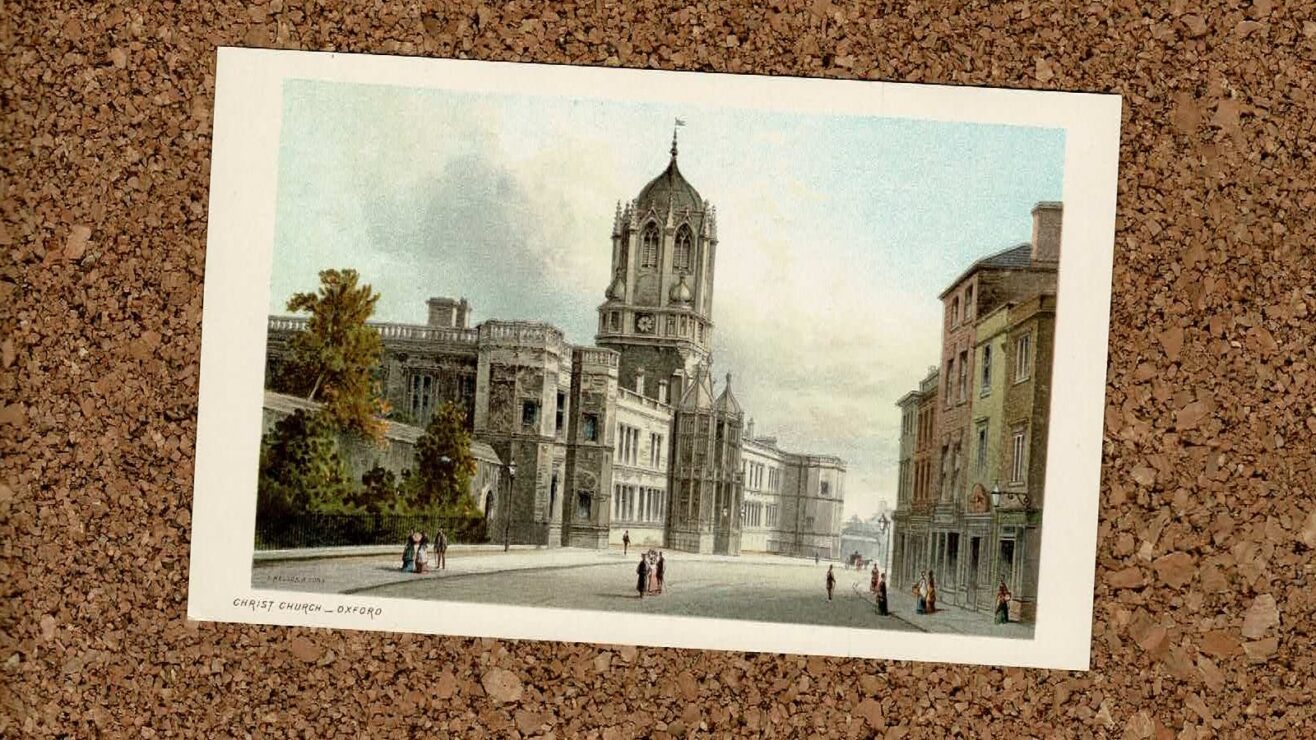On New Year’s day, Chris Patten began the Lord’s revolt against the Higher Education and Research Bill with a fierce article that accused Jo Johnson of seeking “state control” over universities.
Touching on the themes of academic freedom and institutional autonomy, Patten’s polemic trailed the lengthy, rather philosophical House of Lords debate about how to define a university. The subsequent government defeat sent a very clear message to Johnson about the future of his legislation.
Patten’s argues that “worst of all is the power given to the Office for Students to revoke the acts of parliament or royal charters that have established our universities. How can it be right to allow institutions, some of ancient standing, to be abolished with only weak parliamentary scrutiny?”. Mike Ratcliffe also wrote on this theme for Wonkhe back when the Bill was first published.
Higher education legal wonk Smita Jamdar has argued that the Bill will give the OfS no such power, but rather enable it to revoke degree awarding powers or use of ‘university’ title – neither of which is an extension of current regulatory powers.
This argument based on ancient standing may have left many wondering: what are Royal Charters? And what role do they play in today’s higher education institutions?
Getting the royal seal of approval
According to the Privy Council, a royal charter is a document authorised by the ruling monarch that creates a single legal entity, grouping single individuals into an incorporated body with its own legal rights. A Royal Charter outlines the principles, powers and function of that body, and its Statutes outline how the body will be governed. The Bank of England, City of London, and Royal Society are all examples of organisations that have their own Royal Charters. Today, the Privy Council plays the role of managing any applications to amend charters and statutes.
Royal Charters was one of the few methods by which universities could once be established. The universities of Oxford and Cambridge are two of the earliest known examples of Royal Charters, awarded in 1248 and 1231 respectively. Both Oxford and Cambridge have rich and interesting origin stories but were both essentially issued their charters to protect scholars from threats of violence from local townsfolk and exploitative landlords.
Charters could also have political motivations. In Dublin, Trinity College was established in 1592 as a way of strengthening the Protestant Reformation and the power of the Tudor monarchy.
In Scotland, St Andrews, Glasgow, and Aberdeen universities were established by Papal Bulls – a directive from the Pope – while Edinburgh was established by Royal Charter in 1582. The latter’s use of a charter was also a statement of the Scottish Reformation and the independence of the Scottish crown from Rome.
Scotland’s ancient universities still hold distinct governance structures which were confirmed in the Universities (Scotland) Act 1858-1966. In the recent Lords debate, Baroness Wolf cited Aberdeen’s foundation Bull: “as people will know, university scholars and teachers were often a thorn in the side of the Church, just as the Church was a constant irritation to monarchs who would have liked to be absolute in the exercise of power.”
New instruments of government
Since the Nineteenth Century, there have been numerous examples of legislation that have built on or altered these ancient charters and bulls. The most significant was the Further and Higher Education Act 1992, which gave the Privy Council responsibility for approving the use of university title (UT) and degree awarding powers (DAPs).
This is the foundation for the now familiar and ever-contentious DAP process, and royal charters ceased to be the method by which universities were established. At the time, this prompted similar complaints about the risks of allowing the creation of new providers and compromising universities’ autonomy that we are hearing today.
Today’s Higher Education and Research Bill moves the powers to administer and authorise DAPs and UT away from the Privy Council and to the new Office for Students. It also proposes changes to how quickly providers can attain DAPs and UT, with the introduction of provisional DAPs for brand new providers.
The concern has been raised about whether the Bill gives the power for government to revoke the Royal Charters, but as noted above, this appears to be a red herring. For its own part, the Department for Education’s most recent factsheet on DAPs and UT makes the point in bold on page 33.
All ancient history…
Beyond being wide of the mark on the what the Bill means, the argument raised by Patten is problematic on its own terms. Threaded throughout Patten’s article and at times in the arguments of the rebellious Lords is an assumption that there is a direct correlation between the establishment of an institution through ‘ancient’ means, such as royal charter or papal bull, and its right to autonomy. While it is true that for many ancient universities their formation revolved around protections from violence and threats to their academic ventures, this was in response to a very particular (and long forgotten) historical context.
Simply being ‘ancient’ and founded by a mystical vellum document should confirm no special right to confer degrees until the end of time, when direct business competitors have no such privileges. Here, we seem to have another example of the way in which prestige and privilege work in the sector; protected by those who institutions who will forever have it at the expense of those who can never gain it.
Ancient universities have changed over time, and universities established through direct government instruments – predominantly since 1992 – are not the only modern universities. The ancient universities are not the same places they were when they first received their charter from a monarch. And let’s not forget that Oxford and Cambridge originally derailed an attempt to establish a university at Durham under Henry VIII, out of concern for their own privileges. The modern University of Durham was not established until 1832. Patten’s arguments repeat those made against founding a new university in England until the nineteenth century.
The problem with making a case based on history is the assumption that ‘new’ automatically means ‘bad’. Concerns about opening up the sector to new providers are not unjustified. Looking to protect students’ and taxpayers’ money is vital, and we have seen how poor regulation and oversight can be disastrous in failing new providers. But measures put in place to avoid these concerns should apply across the whole sector.
If an institution is not functioning properly or meeting regulatory requirements, why should an ancient charter exempt them from possible closure or intervention? Why should ancient mean forever?













I’m not sure that anyone is really trying to argue that universities cannot change their charters; but rather that the OfS was being given the power to revoke degree awarding powers and the use of university title across all kinds of universities (subject to appeal). The provisions can be read such that these would be used if the governing body of a university asked to have these functions wound up – universities have surrendered their charters and/or their degree awarding powers (the Institute of Education gave theirs up on merger with UCL). The concern is that the OfS could decide to revoke against the wishes of the university. The Lords are testing these powers; with the minister saying that OfS would be bound to act rationally, reasonably and following the proper procedure.
It is a small comfort that at least the Government is acting consistently, giving OfS the same powers over universities who exist through acts of parliament, charters or by being higher education corporations (as created in 1988). OfS not only has the power to create conditions for universities, say on access or governance, but then has the power to revoke university title and degree powers. Amendments in the Lords are trying to tease out how that would work – what warnings would OfS give, when it gave notice would it do it secretly (one amendment call for that) or would a university be required to tell its students that it’s been given notice (another amendment calls for that)?
The history of reform in our universities is give and take. In 1988 the government took away tenure, but enshrined academic freedom. We need to discuss whether the 2017 provisions give too much to OfS.
If someone wanted to disrupt the Bill, might the author suggest a strategy that may have otherwise worked?
There is a chorus of protest at this Bill, and most assent I hear is less in acceptance of the Bill’s principles and more in acceptance that they had no choice but to comply.
The berating of ‘ancient’ HEIs’ leverage in the sector is a fuel well exhausted and one too easy to burn. Yes, Oxford’s Patten unsurprisingly promotes the entitlements of his own institution – perhaps arrogantly – when criticising the Bill’s uncomfortable reliance on the oft-oil-and-water combination of consumerism and state-control.
Yet intervention in the Bill’s passing in the Lords is: a) well-aimed at an audience where sympathy is likely (be honest!); and b) consistent with sector-wide concerns about the far-reaching powers of a body with such vague definition and purpose (OfS). Oxbridge shouldn’t have privileges for being ancient, but they may be as concerned as any HEI about the new Bill and its affect on their autonomy; and they are likely to have larger bargaining power than other institutions. The Bill permits a new body to judge these ancient institutions’ performance using metrics arguably different to ones they have succeeded with for a long time, namely ones relegated to research output and high performing graduates who have excelled at all levels of their education. I, as many, would like to see all institutions having the same sway in society; but it feels easy-pickings to criticise Patten’s success at doing what many have secretly been wishing.